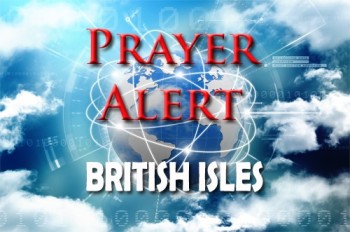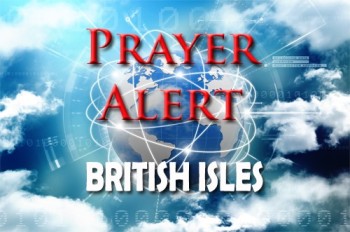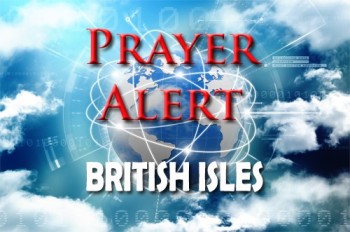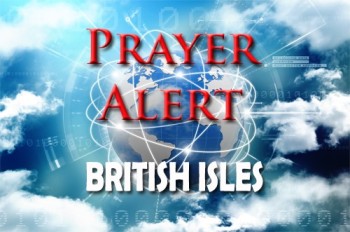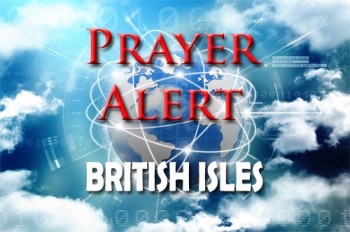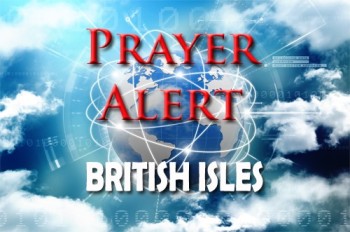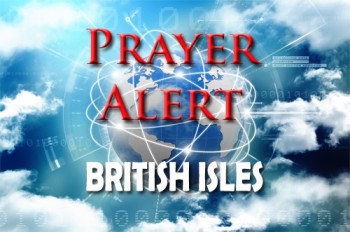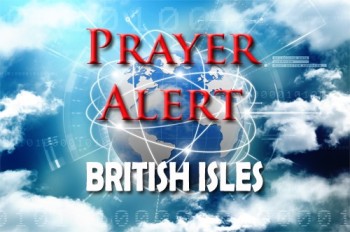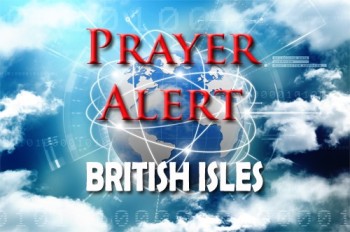Displaying items by tag: British Isles
Huntington’s disease: groundbreaking new therapy brings hope to many
Doctors have reported a groundbreaking success in treating Huntington’s disease, a hereditary neurodegenerative disorder that combines symptoms of dementia, Parkinson’s, and motor neurone disease. A gene therapy trial at University College London slowed disease progression by an average of 75%. This means that a decline expected in one year would now take four, offering patients decades of improved quality of life. The therapy, delivered in a single dose through 12–18 hours of intricate brain surgery, permanently reduces production of the toxic huntingtin protein that kills brain cells. Early treatment may even prevent symptoms from developing. Among 29 trial participants, markers of brain cell death decreased instead of rising, and some patients regained independence: one returned to work after medical retirement. For families like Jack May-Davis’s, who lost his father to Huntington’s and carries the faulty gene himself, the breakthrough brings unprecedented hope. While the treatment will likely be costly, researchers call the results ‘spectacular’ and potentially life-changing.
Northern Ireland: Bloody Sunday trial will proceed
The long-delayed trial of 'Soldier F’, the only veteran to face charges over the Bloody Sunday shootings in 1972, will proceed after a Belfast judge ruled key statements from fellow soldiers admissible as evidence. Soldier F is accused of murdering James Wray, 22, and William McKinney, 26, and attempting to murder four others during the civil rights march in Londonderry. Judge Patrick Lynch confirmed that contemporaneous statements to the Royal Military Police and the Widgery Tribunal could be used, despite defence claims they were inadmissible. Prosecutors admitted these statements are the only evidence linking Soldier F directly to the shootings. Relatives of the victims welcomed the ruling with relief, while veterans’ groups expressed disappointment, fearing unfair treatment compared to IRA members who escaped prosecution under the Good Friday Agreement. Bloody Sunday saw 13 protesters killed, a defining moment in Northern Ireland’s Troubles, later deemed 'unjustified and unjustifiable' by the Saville Inquiry. Soldier F, who denies the charges, listened from behind a screen as proceedings continued.
Andy Burnham warns UK needs 'wholesale change'
Greater Manchester mayor Andy Burnham has urged the Labour Party to pursue 'wholesale change' to confront what he described as an 'existential threat' to Britain. Speaking ahead of Labour’s annual conference in Liverpool, Burnham criticised the party’s leadership style under Keir Starmer as 'factional and divisive’. Though often tipped as a future leader, he insisted he was not plotting an immediate return to Westminster, but challenged Labour to present a clear plan to 'turn the country around’. He said he was willing to work with anyone serious about radical reform, citing his efforts to re-nationalise Manchester’s bus network as an example, and suggesting that core services such as housing, energy, water, and rail should return to public ownership. His intervention comes amid political turbulence for Starmer, following Angela Rayner’s resignation over tax errors, the sacking of Peter Mandelson for links to Jeffrey Epstein, and the departure of a senior aide over offensive leaked messages.
Expanded England childcare scheme ‘poorly thought out’
The Government’s expansion of free childcare in England, offering thirty hours a week from nine months of age, has been welcomed by some parents but criticised as poorly designed and underfunded. For Alec, a father in Sheffield, the policy reduced his family’s nursery bill by 55%; he calls it the first initiative with immediate positive impact on his life. Yet many providers say the funding does not cover costs, forcing them either to reject places, cap hours, or raise fees for other families. Parents in Oxford, Kent, and Hampshire described waiting lists of more than two years, rising charges, and nurseries unable to offer the full entitlement. Some households not eligible for the scheme reported fee increases of up to 30%, while others reduced working hours or diverted income to qualify. Critics say the expansion risks increasing demand without addressing structural shortages, leaving families with little flexibility and higher costs. While hailed as a major investment, many see the system as unsustainable, a 'sticking plaster' rather than a long-term solution for childcare. See
Epping hotel asylum seeker jailed for sex assaults
An Ethiopian asylum-seeker has been jailed for a year after sexually assaulting a 14-year-old girl and a woman in Epping, Essex. Hadush Kebatu, who had arrived in the UK by small boat just eight days earlier, was found guilty of harassment, two sexual assaults, inciting a child to engage in sexual activity, and attempted sexual assault. His arrest sparked protests outside the Bell Hotel, where he had been housed. At Chelmsford magistrates’ court, judge Christopher Williams described the offences as 'disgusting and sickening’, noting the lasting fear inflicted on the schoolgirl, who said she now feels unsafe going out with friends. Kebatu also assaulted a woman who had offered to help him with his CV, placing his hand on her thigh. He is subject to automatic deportation under the UK Borders Act 2007 once his sentence is served. Essex police praised the victims for their bravery in testifying. The case has reignited public concerns over safeguarding, asylum accommodation, and the protection of vulnerable people from predatory behaviour. See also
Trump meets Starmer as £150bn US investment is announced
Donald Trump has met Keir Starmer at Chequers during his second state visit to the UK, following the announcement of £150 billion in American investment. The funds, pledged by major firms including Blackstone, Prologis, and Palantir, are expected to create around 7,600 jobs across Britain. The leaders are set to sign a 'technology prosperity deal' to boost UK artificial intelligence development, while also discussing trade, investment, and foreign policy. The talks come after a Windsor Castle state banquet, where both Trump and the King hailed the 'special relationship' between the UK and US. While Starmer hopes to spotlight renewed transatlantic ties and economic opportunity, both governments face awkward questions, including ongoing controversies linked to Jeffrey Epstein and differing positions on Israel. Chancellor Rachel Reeves will also host a Downing Street reception for US and UK business leaders to showcase deeper cooperation. The visit marks a significant moment for strengthening economic and diplomatic bonds between the two nations.
Small boat immigrant deportation flights grounded again
The Government’s new 'one in, one out' deal with France to deport Channel migrants has hit delays, as deportation flights were grounded for a third consecutive day. The Home Office is appealing a High Court ruling which halted the removal of a man claiming to be a victim of modern slavery. Home secretary Shabana Mahmood condemned 'last-minute, vexatious' appeals, vowing to fight attempts to block removals and pledging to review the Modern Slavery Act to close loopholes. She insisted that Britain’s generosity was being exploited and promised to 'robustly defend the public’s priorities’. The UK-France pilot scheme, agreed by Keir Starmer and Emmanuel Macron in July, would return asylum seekers arriving illegally in small boats while allowing approved applicants to enter the UK through a legal route. Officials maintain flights will still go ahead in the coming days, despite setbacks. Critics warn, however, that deportations must carefully consider genuine trafficking cases and vulnerable individuals. Breaking news: the first deportation has taken place. See
Musk's language abhorrent, says Shabana
Home secretary Shabana Mahmood has branded Elon Musk’s language at a London rally 'abhorrent’, after he warned of violence linked to uncontrolled migration and called for Parliament’s dissolution. Mahmood insisted: 'No-one gets to mess with British democracy’, stressing that Britain is a tolerant and diverse nation. Musk’s remarks, delivered in conversation with activist Tommy Robinson at the 150,000-strong 'Unite The Kingdom' march, were condemned across the political spectrum. Liberal Democrat leader Sir Ed Davey said Musk was 'deeply irresponsible, deeply dangerous’, while Downing Street called his words inflammatory and threatening to public order. Debate also arose over whether Musk’s Tesla and energy ventures should receive UK contracts, with critics urging government review. Nigel Farage defended Musk’s appeal to 'fight' through free speech and elections, though others accused him of fuelling division. As protests and counter-protests highlighted national tensions, Mahmood affirmed that English identity embraces both long heritage and diverse backgrounds.
Christian councillor ‘shocked’ at Danny Kruger’s defection to Reform UK
Conservative councillor Clare De Silva has expressed her sadness at fellow Christian Danny Kruger’s defection to Reform UK. Kruger, MP for East Wiltshire since 2019 and formerly shadow work and pensions minister under Kemi Badenoch, announced his move alongside Nigel Farage, who appointed him to lead a new Reform team preparing for government. Calling the decision 'very painful’, Kruger declared, 'The party is over: the flame is passing from one torch to another’, and praised Farage as 'our last hope' on the right. De Silva told Premier Christian News she was shocked and saddened, calling the departure a poignant loss. While disagreeing with his choice, she stressed the importance of Christians disagreeing well in politics: 'I know Danny is a God-fearing man and will have made this decision really carefully… we should disagree well.' The moment highlights both division and opportunity for grace among believers in public life.
No food trade deal until we get youth mobility, EU tells Starmer
Brussels has warned that no deal on easing border checks for UK food imports will be reached unless Britain agrees to expand youth mobility schemes. The proposed sanitary and phytosanitary (SPS) agreement - central to Labour’s plan to reduce food costs by 2027 - would align rules on plants, animals, and food products, cutting supermarket prices and border delays. But EU negotiators insist progress depends on allowing more young Europeans aged 18 to 30 to live and work in the UK. Cabinet office minister Nick Thomas-Symonds pressed for urgency during talks in Brussels, stressing the need for relief as food inflation has risen for five consecutive months, with key staples up 5.1% annually. European diplomats, however, argue the SPS deal is more important for Britain than the EU. Meanwhile, UK firms face possible exclusion from bidding on EU defence projects worth €150 billion unless terms are finalised soon, with France resisting UK involvement. The Government faces mounting pressure as household food costs continue to climb.

